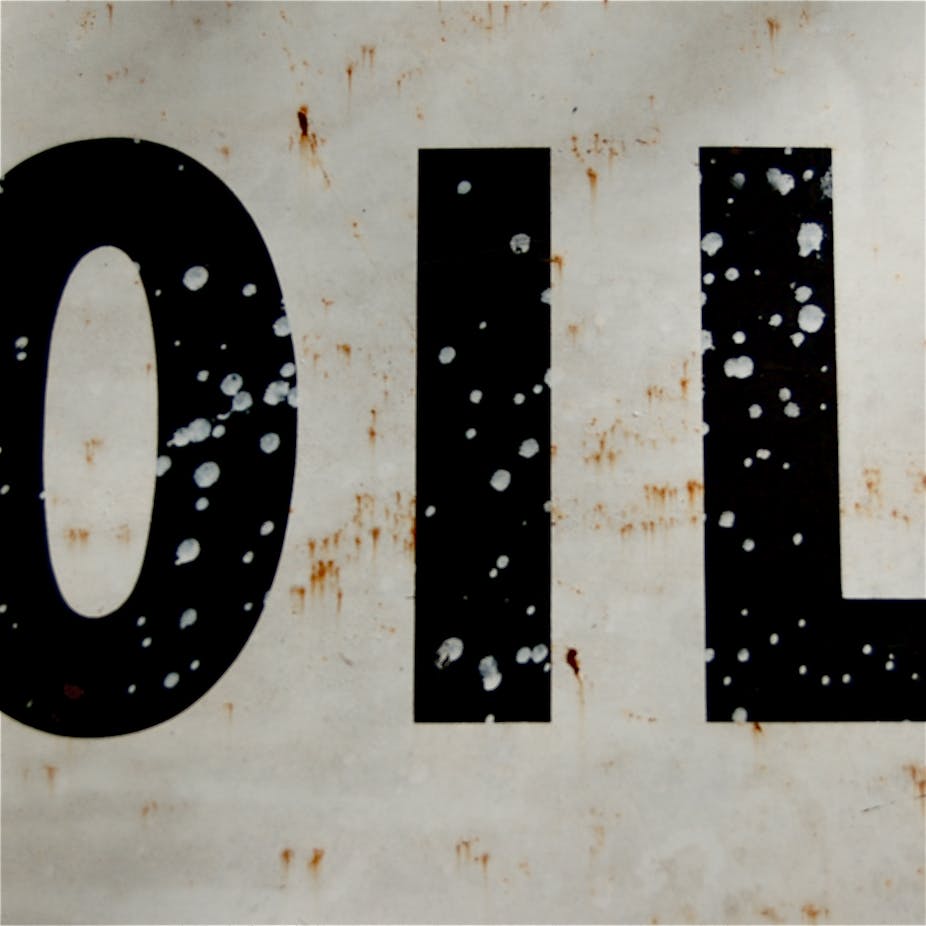Oil is a finite and non-renewable resource. Its production is going to peak.
“Peak oil” is the point at which half of the world’s original endowment of oil has been extracted.
This is the point at which we can extract oil at the maximum rate. After that time the rate of extraction will decline.
Yesterday, today or tomorrow? We don’t know
Some analysts argue this peak has already happened.
Most recently, International Energy Agency (IEA) chief economist Fatih Birol stated the world’s crude oil production peaked in 2006.
But there is a lack of transparency about remaining oil reserves in numerous countries, and there is no enforcing international mechanism to ensure disclosure of such information.
So it’s impossible for any government, international organisation, petroleum consultancy or geologist to accurately predict the exact time when oil production will peak.
Declared oil reserves and predictions about peak oil do not include likely future production from unconventional sources such as oil sands, oil shale, gas-to-liquid, or coal-to-liquid.
Reserves of unconventional oil are several times as large as those of conventional oil. They are becoming highly profitable for energy companies because of high prices.
What makes predictions about peak oil even more difficult is that it is not just geological and economic factors that affect oil production levels.
Oil-producing governments can reduce supply to the international markets by limiting access to the supply through nationalisation, production cutbacks and increased taxation.
International sanctions, embargoes and military conflicts can also reduce supply.

A misguided fit of peak
Whether global oil production has peaked or not is irrelevant.
In fact, the term “peak” tends to imply a steep ascent followed by an equally steep descent.
Examination of oil supply trends year-to-year over recent decades shows the observed pattern can better be described as a plateau.
Sadly, plateaus are not very exciting as landscapes or in their implications compared to peaks.
Even with higher oil prices, global oil production is unlikely to increase significantly beyond its current level due to rapid decline in production in the existing large field.
In fact, it is likely to remain at its plateau for the remainder of the decade.

An expensive habit to break
The age of cheap oil (and cheap petrol) is over.
Given increasing demand from China, India and elsewhere, consumption will continue to decline in developed countries.
To make this possible, oil prices will have to stay high and rise gradually over time.
The future upward pressure on prices will also come from policies adopted to mitigate carbon emissions.
Rising oil prices will also accelerate transition to other energy sources.
But at least a decade will need to pass before alternative transportation fuels become cost-competitive products that can rival refined petroleum.
We also need at least a decade before the infrastructure required to introduce and market these products is built.
We also can’t ignore significant political opposition from the very powerful oil industry to subsidies for any competitive fuels.
Consequently, our transportation sectors will remain largely dependent on crude oil and refined petroleum products for the remainder of this decade.
The legacy of a dying industry
Energy transition is likely to produce significant problems for the producers of oil over the next two decades.
For them, socio-economic dislocation will be common and potentially severe, as witnessed by economic depression in former major coal-mining regions.
This will lead to an increased likelihood of conflict in these regions.
But it’s also possible that because many large oil producers are also natural gas producers, this might minimize the dislocation.

History’s on our side
The world needs more energy from more sources, more energy security, and energy that is less damaging to the environment.
Historically, every energy transition has been accomplished not only without damaging global economic performance, but with elevating economies and societies to new levels of productivity and affluence.
Provided we make fast progress on new energy technologies, and develop appropriate policies in parallel, there will be minimal socio-economic dislocation associated with higher oil prices and the plateau in global oil production.

